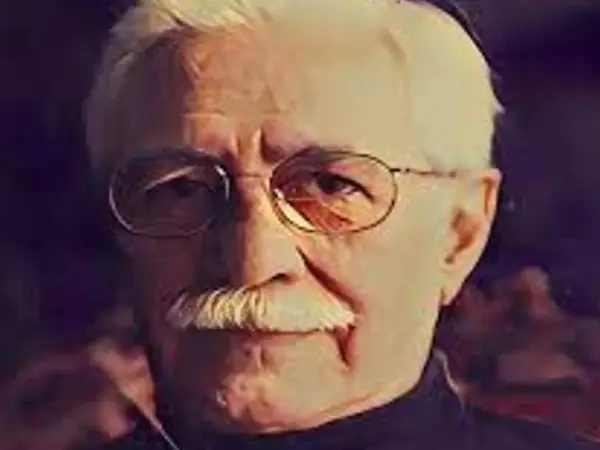Iraj Pezeshkzad who immortalized the phrase, "It's the work of the British" in the most popular satirical Persian novel of the 20th century, passed away this week in California at the age of 94.
The highly acclaimed work, My Uncle Napoleon, was published in the early 1970s and was made into an extremely successful TV series. It was banned after the Islamic Revolution of 1979 but is still among the most sought after underground works of literature and film in Iran.
In Pezeshkad's novel set at the onset of the Second World War in Tehran, the small local wars that the main character of the book, a low-ranking officer once fought, gradually evolve into great wars against the British on par with the Napoleonic Wars. Uncle Napoleon's orderly, the simple and uneducated Mash Ghasem, not only begins to believe, or pretend to believe in the stories of Uncle Napoleon's heroic wars against the British, but also increasingly attempts to weave stories of his own heroism into it but the imaginary adventures only make the delusional patriarch the laughingstock of the family.
Pezeshkzad, a former French-educated judge and diplomat, captured the imagination of Iranian readers with his most vivid characters in a manner that no other contemporary author has. There is almost no one in Iran who is not familiar with his characters and its many famous catchphrases including, "It's the work of the British."
The main character of My Uncle Napoleon has gradually come into believing his own stories, identifying himself with Napoleon, and living in constant fear of British plots to kill, or failing that, to dishonor and discredit him. "It's the work of the British", the old man will say in the face of any mishap that befalls him or his family. Even a sex scandal involving a niece of the family in Uncle Napoleon's delusional mind, is cited as proof that there is a British conspiracy against him.
The fame of the book and its catchphrase is such that British diplomats in Iran in the years following the publication of the book came to know about it probably within the first few days from their arrival. Former British Foreign Secretary Jack Straw even took inspiration from it to write a book entitled "The English Job: Understanding Iran and Why It Distrusts Britain".
Amongst British diplomats, there’s a poignant joke that ‘Iran is the only country in the world which still regards the United Kingdom as a superpower’. For many Iranians, it’s not a joke at all," an introduction to Straw's book said.
Nearly two centuries of Iranian politics, particularly the 19th century, was deeply influenced by the British-Russian embassies and their rivalries. Many Iranians still see the hand of the British in everything. Probably with the historical fear of the Iranians toward the British in mind, Iran's Supreme Leader Ali Khamenei in 2009 cast the blame for nationwide unrest following a disputed election on the British government. Hardliners claimed the British were behind the "sedition" against the Islamic
Pezeshkzad never singled out a real-life inspiration for the pathetic, delusional and bullying character who the children of the family including the narrator always called Uncle Napoleon amongst themselves. In a speech at the University of California, Los Angeles, Pezeshkad said the character originated in his memories of his childhood when grownups would indiscriminately label most politicians as "British lackeys".
Pezeshkzad made every episode of love or feud in Uncle Napoleon's family into funny, yet often very tender, narratives. His book, he told BBC Persian years ago, was inspired by the story of his own naive teenage love and memories from his own extended family. Pezeshkzad's book has been translated into several European languages including English.
